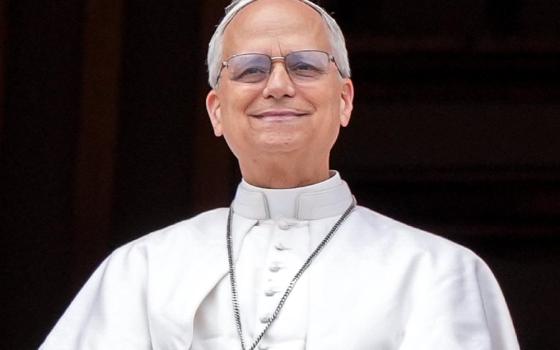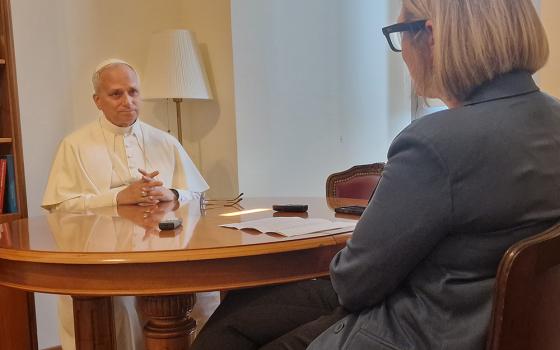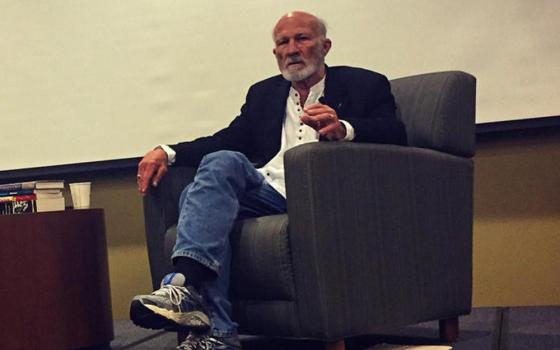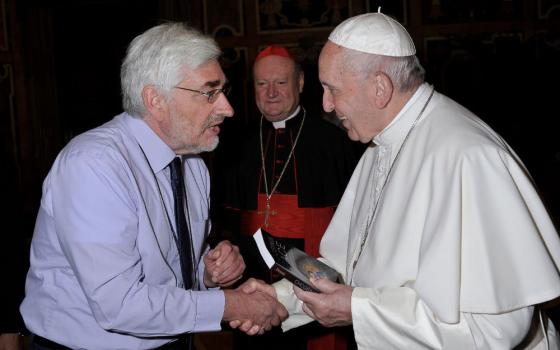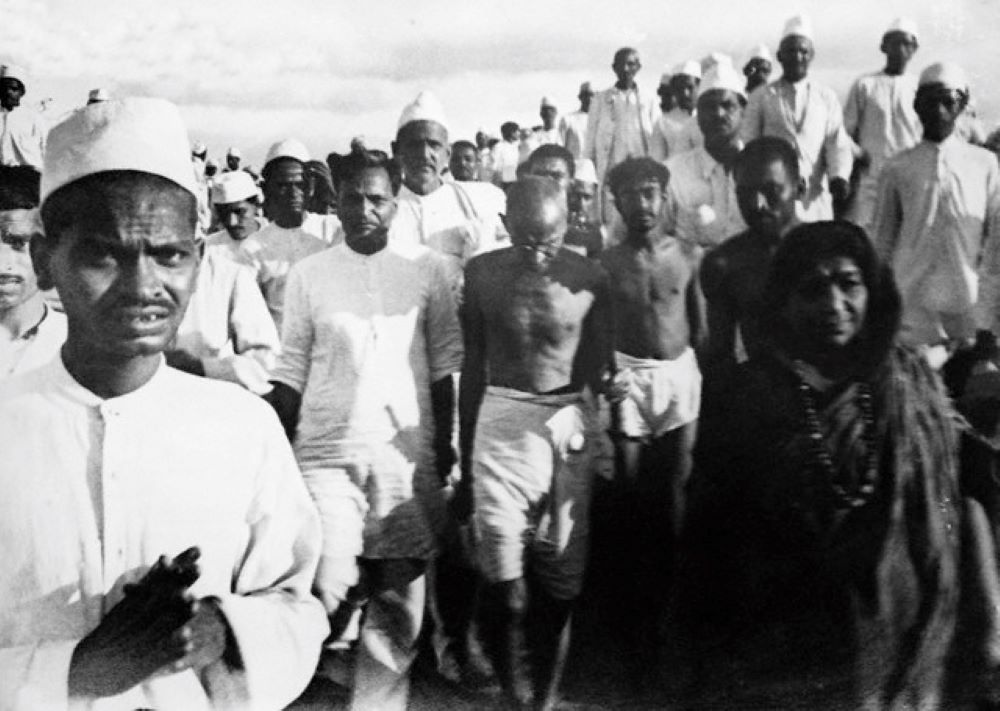
Mohandas Gandhi, center, walks during a peaceful protest called the salt march on March 12, 1930. (Wikimedia Commons)
This week on "The Nonviolent Jesus Podcast," John Dear welcomes teacher and organizer Terrence Rynne, author of two important books, Jesus Christ, Peacemaker, and Gandhi and Jesus.
Rynne is a former priest from Chicago who became a hospital administrator. From 1983 to 2003, he was president of Rynne Marketing Consulting Services which advised over 400 hospitals in 48 states over the 20 years.
In 2006, he received his PhD in theology from Marquette University. In 2008, he co-founded, with his wife Sally, the Center for Peacemaking at Marquette University. For years, he has taught the Introduction to Peace Studies course at Marquette University. He is also chair of the board of The Beatitudes Center and a board member of the National Catholic Reporter.
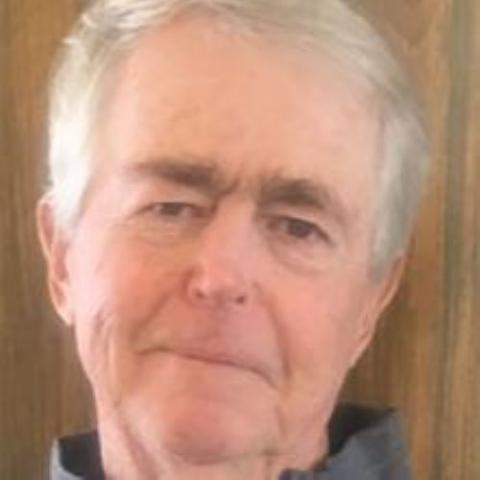
Terrence Rynne
Rynne spoke about the power of Mohandas Gandhi's 1930 salt march to mobilize the people of India to demand justice and independence, and in particular, the famous silent march to the Dharasana Salt Works, where the British hit each of the 2,500 peaceful marchers over their heads with steel poles just as they approached the gate.
This deliberate British violence and the unarmed response of the wounded shocked the world and forced Britain to begin the process of leaving India and granting independence. That's the logic of the cross, Rynne explained.
"Jesus devoted his life to confronting the structures of oppression and violence and changing them through active nonviolence," he said.
In the earliest Gospel, in one of his first public actions, Mark's Jesus heals the man with the withered hand in the synagogue. In the next sentence, we read that the religious authorities met with the political leaders to plot the assassination of Jesus.
Advertisement
"Why did Jesus die?" Rynne asks. "Because he was killed. Why was he killed? Because he stood up and offended the powers that be."
We, too, need to stand up, speak out and resist the structures of violence and oppression, even to the point of offending the powers that be, Rynne said, if we want to follow Jesus.
Jesus removed suffering from people, Rynne added. Jesus changed the culture's attitude towards violence; he turned enemies into friends. That's his challenge for us today.
"Nonviolence is at the heart of the Gospel," Rynne said. "Nonviolence adds love even in the midst of conflict. These days, I have hope in the Catholic Church becoming a peaceful church that embraces nonviolence. We can get there."

